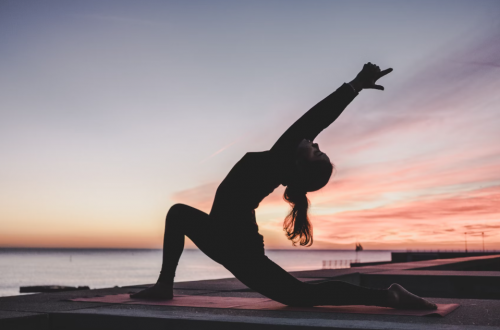
Wellness Retreats for Couples: Strengthening Bonds
Understanding Wellness Retreats

What Defines a Wellness Retreat?
A wellness retreat is more than just a vacation—it’s an immersive, holistic experience designed to rejuvenate the mind, body, and spirit. Typically held in serene, natural environments, wellness retreats offer activities like yoga, meditation, clean eating, mindfulness, spa treatments, and sometimes even therapy. For couples, these retreats provide a meaningful escape from routine, allowing them to reconnect with themselves and each other in a deeply healing way.
Why Couples Choose Wellness Retreats
Couples today face increasing stress from careers, digital distractions, and daily responsibilities. Over time, connection may dwindle, communication suffers, and routines become stale. A wellness retreat acts as a pause button—offering dedicated time to unplug, rediscover shared values, and realign emotionally. It’s not just about relaxation; it’s about healing, growing, and rebuilding intimacy in a purposeful setting.
Benefits of Wellness Retreats for Couples
Physical Health Improvements
Shared yoga sessions, guided nature walks, and healthy meals contribute to better physical health. Exercising and eating clean together often sparks long-term habits, encouraging couples to support each other’s wellness journey even after the retreat.
Emotional and Mental Connection Enhancement
Meditation and mindfulness activities cultivate self-awareness and emotional resilience. When practiced together, they open new channels of empathy, helping partners understand each other’s inner world on a deeper level.
Communication and Conflict Resolution
Many retreats include relationship coaching or workshops focused on communication techniques. Whether it’s learning to listen actively or express vulnerability, couples can build tools to better manage disagreements and strengthen mutual respect.
Popular Types of Wellness Retreats for Couples
Yoga and Meditation Retreats
These retreats are ideal for couples seeking tranquility and spiritual connection. Daily yoga flows, breathing exercises, and group meditations help synchronize minds and bodies, creating a calming rhythm that fosters shared presence.
Spa and Relaxation Retreats
Perfect for those needing stress relief, these retreats center around massages, hot springs, detox treatments, and aromatherapy. The goal? To reset the nervous system and promote intimacy through physical rejuvenation.
Adventure and Nature-Based Retreats
For active couples, retreats that include hiking, kayaking, or mountain trekking blend wellness with excitement. The thrill of exploration combined with time in nature deepens bonds through shared challenges and achievements.
How to Choose the Right Wellness Retreat
Considering Your Relationship Needs
Every couple is different. Some need emotional healing, others physical relaxation, or spiritual awakening. Sit down together and identify your goals: Do you want to reconnect emotionally? Break old patterns? Try something new? Your answers will guide your choice.
Location and Setting Importance
Whether it’s a rainforest in Costa Rica or a zen beach in Thailand, the destination plays a huge role in setting the mood. Look for places that inspire calm and curiosity. Pro tip: remote, eco-friendly retreats often offer the best immersive experiences.
Program Content and Activities
Not all retreats are created equal. Carefully review itineraries—do they include couple-centric activities? Are there opportunities for solo time and reflection? The best retreats strike a balance between structured activities and free space for connection.
Preparing for a Wellness Retreat as a Couple
Setting Shared Goals
Talk openly before you go. What do you hope to get out of it? Reignite intimacy? Learn better communication? By defining clear intentions, you’ll have a stronger sense of purpose and direction during the retreat.
Packing and Planning
Most retreats will provide packing lists, but essentials often include comfortable clothing, journals, water bottles, swimwear, and a willingness to be vulnerable. Leave the laptop behind—this is your time to digitally detox and be fully present.
What to Expect During the Retreat
Daily Routines and Activities
Expect a structured schedule: early morning yoga, guided meditations, organic meals, therapeutic workshops, and evening reflection. Free time is usually built in for relaxation, nature exploration, or personal journaling.
Opportunities for Reflection and Bonding
Many retreats offer heart-opening conversations, couples’ therapy sessions, or partner yoga. These moments are designed to bring buried emotions to the surface and help partners find clarity, appreciation, and renewed love.
Post-Retreat: Maintaining the Benefits
Integrating Practices into Daily Life
What happens after the retreat is just as important. Bring back the lessons—start a daily meditation ritual, cook nutritious meals together, or schedule weekly check-ins. The magic lies in continuing the journey at home.
Continued Communication and Support
Relationships thrive on open dialogue and shared growth. Don’t let the retreat be a one-time event. Reflect regularly on your experience, adapt what worked for you, and revisit your couple goals every few months.
Conclusion
A wellness retreat for couples is more than a getaway—it’s a transformative reset button. It offers space to breathe, to heal, and to love more intentionally. Whether you’re celebrating a milestone or navigating a difficult phase, this shared journey can reignite passion, deepen understanding, and equip you with tools to build a resilient, fulfilling relationship.
When you step away from routine and into renewal, you don’t just find peace—you find each other again.
FAQs
1. Are wellness retreats only for couples experiencing problems?
Not at all. While they are beneficial for couples facing challenges, wellness retreats are also ideal for celebrating anniversaries, reconnecting, or simply trying something new together.
2. How long do these retreats usually last?
Most last between 3 to 10 days. Some offer weekend intensives, while others span two weeks for deeper transformation.
3. Is there a specific age group that attends couples’ wellness retreats?
Retreats attract couples of all ages—from newlyweds in their 20s to partners in their 60s looking to rediscover each other.
4. Do we need prior experience with yoga or meditation?
No experience necessary. Most retreats cater to all levels and provide guidance to ensure everyone feels comfortable and supported.




